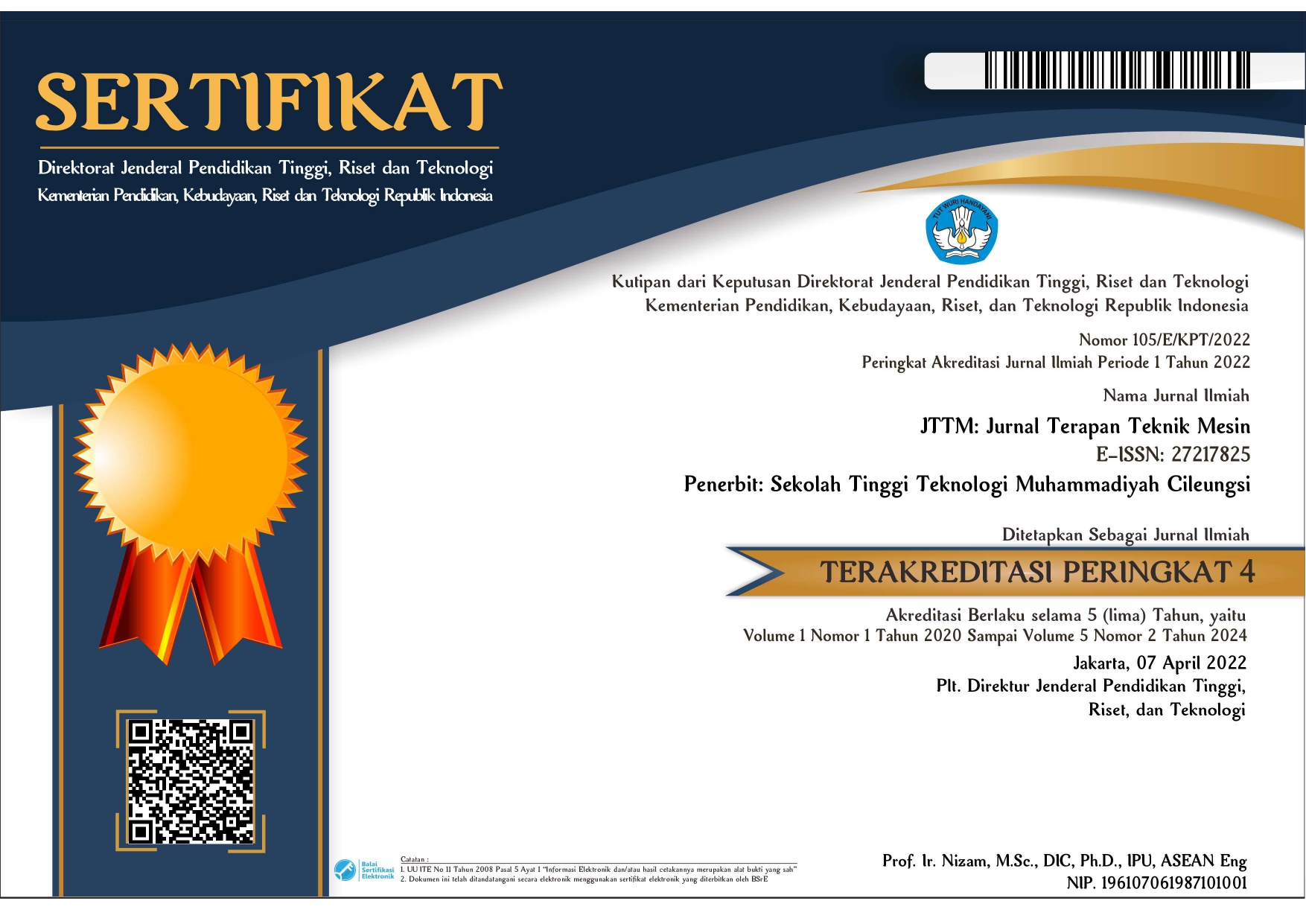Optimasi konsumsi bahan bakar pada mesin bensin menggunakan artificial neural network
Abstract
The engine control unit (ECU) is the primary component of the current injection technique used in spark ignition (SI) engines. The combustion system, which includes injection timing and ignition timing, is controlled by the engine map recorded in the ECU. To maximize an engine's performance, ECU remapping can be used. Remapping is currently not efficient because the data is typically employed in a trial-and-error fashion. To solve these issues, artificial neural network (ANN) techniques are being developed. In this study, engine remapping for fuel economy optimization is predicted using an artificial neural network (ANN). The purpose of this study is to use ANN to compare motorbike performance between before and after engine remapping (Artificial Neural Network). A set of dynamometers is used in this study approach to assess the performance of the 4 stroke, 160 CC spark plug ignition engine in terms of fuel consumption, power, and torque. A current (standard) engine map that contains a number of data from the electronic control unit (ECU) is used to start the optimization process. Pertalite and Pertamax, which are purchased from the closest gas station, are the fuels used in this study. In addition, optimization utilizing ANN is carried out with the goal of 10% increases in torque and power while maintaining a consistent fuel consumption. Following re-implementation into the ECU, the outcomes of the ANN training will be tested again on the dynamometer. The study's finding is that by using the training function, it is possible to improve machine performance using the regression value of R = 0.98993 and the ANN prediction outcomes. Comparing the optimized engine performance to the factory default engine performance, torque increased 10.9% and power rose 9.5%.
Copyright (c) 2023 Agung Nugroho, Mochamad Anugrah Tri Nurhasan, Rony Wijanarko, Darmanto

This work is licensed under a Creative Commons Attribution-NonCommercial 4.0 International License.











